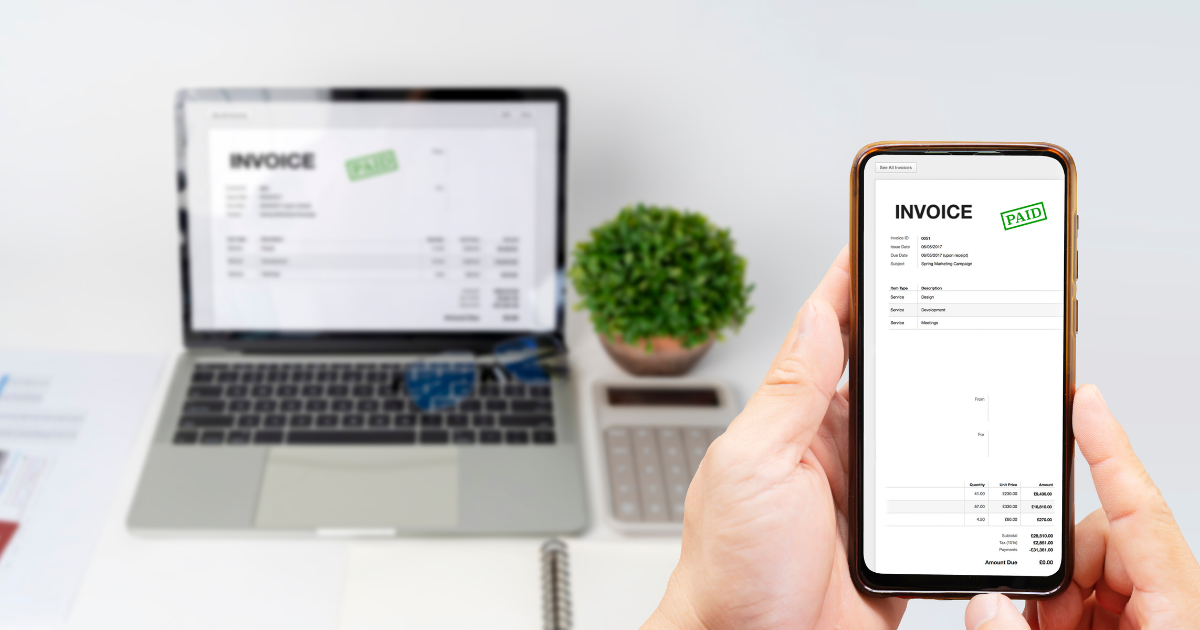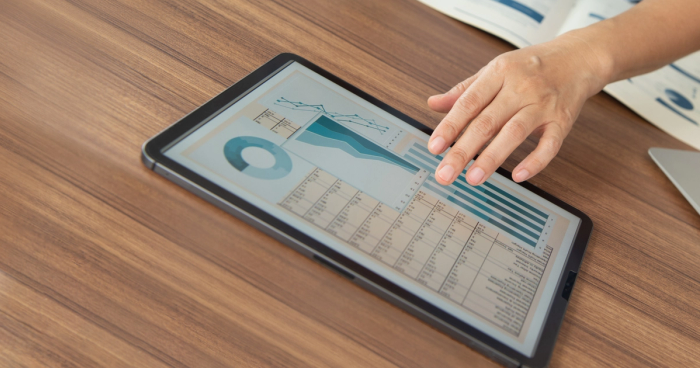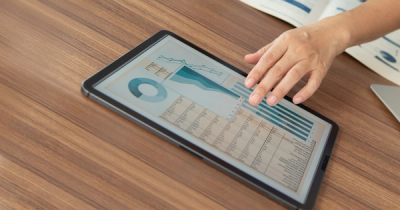Invoicing
Effective Invoicing Strategies for P&L Optimization
Running a small business is a complex endeavor, with various financial aspects to consider. One of the key elements that can significantly affect your business's success is the effective management of Profit and Loss (P&L).

Running a small business is a complex endeavor, with various financial aspects to consider. One of the key elements that can significantly affect your business's success is the effective management of Profit and Loss (P&L).
Understanding P&L Optimization
To navigate these financial aspects, it's essential first to comprehend what Profit and Loss is.
Defining Profit and Loss (P&L)
Put simply, Profit and Loss (P&L) refers to the revenues and costs your business incurs over a certain period. A profit occurs when your revenue exceeds costs, while a loss happens when costs surpass revenue. It's a critical measure of your financial health and operational efficiency.
The comprehension of P&L is just the first step. The next is optimizing it to ensure your business reaps the maximum benefits.
The Importance of P&L Optimization for Businesses
P&L optimization involves strategies designed to maximize profits while minimizing losses. It is a critical part of financial management, enabling businesses to flourish even in challenging economic conditions. For small business owners, effective P&L optimization can lead to better cash flow management, increased operational efficiency, and ultimately, an improved bottom line.
One important aspect of P&L optimization, which is often overlooked, is invoicing.
The Role of Invoicing in P&L Optimization
Let's now delve into the role of invoicing and its relation to cash flow.
Invoicing and Cash Flow: An Overview
Invoicing is not merely about billing your clients or customers. It has a pivotal role in maintaining positive cash flow, which is crucial for all businesses, especially for small ones where margins are commonly thin. A well-managed invoicing process ensures that you always get paid on time, leading to a steady revenue stream that can support operational costs and growth initiatives.
However, the impact of invoicing extends beyond cash flow. It has direct effects on your P&L.
The Direct Impact of Invoicing on Profit and Loss
The efficiency of your invoicing process can significantly influence your P&L. Late or inaccurate invoices can lead to payment delays, resulting in cash flow problems and increasing the chances of losses. On the other hand, streamlined and accurate invoicing can expedite payments, improve cash flow, and contribute directly to profit optimization.
In the next sections, then, we will explore how you can tap into this potential through proactive invoicing strategies.
Proactive Invoicing Strategies for P&L Optimization
Profit and loss optimization is a multifaceted task, and invoicing plays a crucial role in it. With the right strategy, invoicing can turn from a simple administrative task to a powerful tool for maximizing profits and minimizing losses. Let's take a look at some proactive strategies you can adopt:
Strategy 1: Implementing Timely and Regular Invoicing
Timely and regular invoicing forms the backbone of a steady cash flow.
Sending invoices immediately after delivering a product or service can set the right expectations with customers and ensure you get paid within the agreed time frame. Regular invoicing, whether it's weekly or monthly, helps maintain a steady stream of income and keeps your cash flow predictable, enabling better planning and resource allocation.
Moreover, regular and prompt invoicing also signals professionalism to your clients, creating a positive image for your business.
Strategy 2: Using Detailed and Clear Invoicing
Clarity and detail can make a big difference in your invoicing.
Clear, comprehensive invoices eliminate confusion, reduce back-and-forth queries, and expedite payment processes. Ensure your invoices include all necessary details such as the breakdown of services or products provided, pricing, total amount due, due date, payment methods, and the terms and conditions.
Aside from speeding up payments, detailed and clear invoices can also serve as a valuable record for financial tracking and tax purposes.
Strategy 3: Incorporating Flexible Payment Terms
Flexibility can be a game-changer in invoicing.
By offering flexible payment terms, you can cater to a wider range of clients with varying financial capacities. This might involve offering various payment methods, accommodating installment payments, or providing different time frames for payment.
Such flexibility can encourage prompt payments, improve customer satisfaction, and potentially open doors to larger projects or contracts.
Strategy 4: Early Payment Incentives
Motivation through incentives can stimulate quicker payments.
Offering discounts or rewards for early payment can be a win-win situation. For clients, they get a financial benefit. For your business, you get paid faster and improve cash flow, directly contributing to P&L optimization.
Of course, any incentive must be balanced against the potential impact on profit margins.
Strategy 5: Implementing E-Invoicing for Efficiency
Efficiency in invoicing can be significantly boosted by technology.
Electronic invoicing, or e-invoicing, eliminates the need for paper, postage, and manual handling, reducing costs and speeding up the invoicing process. Moreover, many e-invoicing systems also offer features like automated reminders for late payments, further improving efficiency and reducing your administrative load.
In sum, employing these invoicing strategies can have a profound impact on your P&L optimization. However, to effectively implement these strategies, leveraging technology can be a catalyst. Let's delve into this aspect in the next section.
Leveraging Technology for Effective Invoicing
In the digital age, technology serves as an invaluable ally in optimizing your business processes, including invoicing. Let's explore this further.
The Role of Invoicing Software in P&L Optimization
Invoicing software plays a pivotal role in achieving better control over your P&L.
This tool automates the invoicing process, eliminating manual errors and reducing administrative time. It offers features like invoice tracking, automated reminders, and detailed reporting that can help you monitor your income streams closely, control cash flow, and ultimately, optimize profit and loss.
Moreover, many invoicing software options integrate with other accounting and financial management tools, providing a comprehensive solution to manage your business's financial health.
Selecting the Right Invoicing Software: Factors to Consider
Choosing the right invoicing software can significantly enhance your invoicing efficiency and contribute to P&L optimization. However, with the variety of options available, deciding on the most suitable one could be challenging.
Here are some key factors you should consider, along with explanations of why they matter:
- Ease of Use: The software should be user-friendly and intuitive. This means minimal training is required, and you can start using the software efficiently in a short time. The less time you spend wrestling with a complex interface, the more time you can devote to tasks that actually grow your business.
- Cost: Consider the pricing structure of the software. It should provide good value for money and fit within your budget. Remember to look beyond the upfront cost and consider long-term costs, including any fees for upgrades, additional features, or customer support.
- Customer Support: Reliable customer support is crucial, especially if you encounter issues or need help understanding certain features. Look for software with a strong customer support system, which could include tutorials, live chat support, a comprehensive FAQ section, and responsive email or phone support.
- Features: The software should offer features that align with your invoicing strategy. This could include support for e-invoicing, options for flexible payment terms and early payment incentives, and comprehensive reporting features. A good fit is a software that not only meets your current needs but also offers features that could be useful as your business and invoicing strategy evolve.
By considering these factors in your selection process, you can ensure that you choose an invoicing software that not only meets your business needs but also becomes a powerful tool in your P&L optimization strategy.
Pioneering a Profitable Future: A Wrapping Up on Invoicing and P&L Optimization
In conclusion, mastering the art of invoicing for P&L optimization is a journey that requires strategic planning, proactive measures, and the right tools. By implementing timely and regular invoicing, clear and detailed invoices, flexible payment terms, early payment incentives, and e-invoicing, you can transform your invoicing process into a strategic tool for financial success. Remember, the key to financial success is not just about making profits, but also about managing your cash effectively.
In this digital age, leveraging technology, especially invoicing software, can significantly streamline your invoicing process and contribute to P&L optimization. With tools like Cassie, you can simplify the process of cash flow and P&L management. Cassie provides an end-to-end solution, offering complete centralized visibility into your cash flow and contracts. This allows you to focus on what you do best: running your business. By analyzing your financials and bringing your strategy to life, you can plan for tomorrow with confidence and pioneer a profitable future.
Mary Achurra
2024-02-10
Get the cheat sheet and checklist for free
The software tools evaluation checklist will help you choose the best solution for your business.
Latest articles
Get started for free today
Get 21 days free access to our platform and improve your business.





